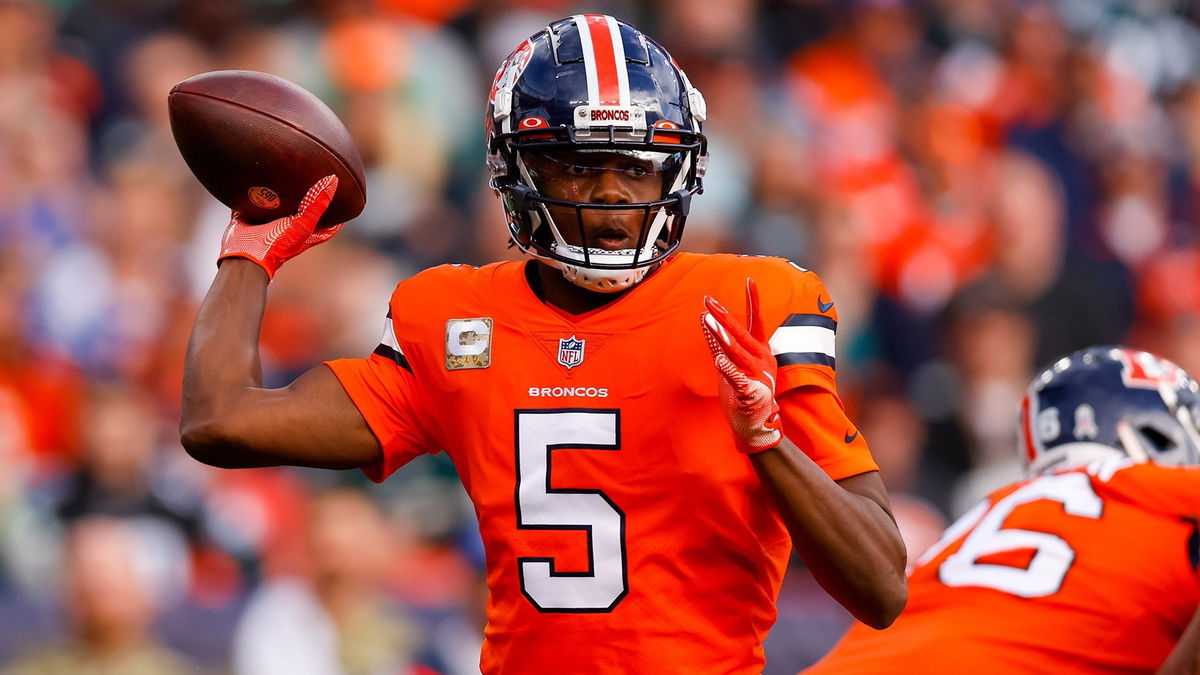

Teddy Bridgewater’s story has always been about giving back to his community, but this summer, that generosity landed him in hot water. After a decade in the NFL, Bridgewater returned home to Miami Northwestern High School, his alma mater, to coach and inspire the next generation. But just as he was preparing for another year after he guided the Bulls to a state title, word got out: the authorities suspended Bridgewater for handing out “impermissible benefits” to his players. According to FHSAA (Florida High School Athletic Association) rules, any financial support, even from a coach’s pocket, violates strict amateurism guidelines, regardless of intent.
Watch What’s Trending Now!
What did he do, specifically? Frustrated with the resources available to him at his school, Bridgewater stepped up. He paid for such things as Uber rides to transport his players to practice, recovery services to ensure they stayed healthy, pregame meals to feed them, and even a preseason training camp, costs that added up to thousands of dollars. He was honest about it, also, taking to Facebook to request assistance from fans in paying these expenses for the next season.
ADVERTISEMENT
Bridgewater didn’t take a step back after the suspension. He posted defiantly that he wasn’t leaving, even if it meant volunteering from the stands like he did before he formally joined the coaching staff. Of course, the suspension created a frenzy of debate online and among the football community. That’s when Robert Griffin III, who is a former Ravens QB and is never afraid to inject himself into football controversy, entered the fray. “Teddy Bridgewater just got suspended as the Head Coach of Miami Northwestern High School because he covered Uber rides, meals, and recovery services for his players out of his own pockets last season,” Griffin writes on X.
Teddy Bridgewater just got suspended as the Head Coach of Miami Northwestern High School because he covered Uber rides, meals and recovery services for his players out of his own pockets last season.
He got suspended for taking care of his players when they were in need,… pic.twitter.com/7fV4M5px1B
— Robert Griffin III (@RGIII) July 14, 2025
ADVERTISEMENT
Bridgwater openly confessed to dropping approximately $700 a week on Uber fares alone, not to mention thousands more on food and equipment. Bridgewater even started a fundraiser to help pay for these expenses, encouraging supporters to contribute to what he termed the “Be The Bridge Foundation.” He ensured his players were equipped with what they required, particularly because so many of them are from economically disadvantaged families. But the regulations are explicit and absolute: coaches are not supposed to give free or subsidized rides or other perks to players. The FHSAA policy aims to avoid favoritism, but in this instance, it seems that the rules are penalizing Bridgewater for showing concern, for filling the gaps in the system.
RGIII put it best on social media: “Not cheating. Not stealing.”. Just caring.” His statement was poignant because it gets at the crux of the issue—Bridgewater wasn’t attempting to circumvent rules to gain a competitive advantage; he was attempting to make the playing field even for children who have little. In an era where numerous high school programs are devoid of fundamental resources, Bridgewater’s actions are a reminder that occasionally, the system’s rules do not align with reality. In the end, Teddy Bridgewater’s suspension is not about rules; “It’s punishing love, leadership, and sacrifice,” As Griffin would say.
ADVERTISEMENT
From NFL star to High School hero
So, Teddy hangs up his cleats after the 2023 NFL season and takes over as head coach at his alma mater in 2024. First season? He leads the Bulls to a state championship, a 12-2 record, a trophy in hand, city buzzing. But the program needed more than just a coach; it needed a lifeline. The school gets its main funding from the Miami-Dade County Public Schools system. That covers the basics: coaches’ salaries, facility upkeep, and some equipment, but not much. When district budgets get tight (which is often), sports programs are usually the first to feel the squeeze.
There have been a few bright spots. In 2011, Miami Northwestern got a $1 million grant from JPMorgan Chase, spread out over three years, but that was earmarked for academic programs and college readiness, not athletics. Sometimes, the athletic department would land a local sponsorship, maybe a neighborhood business would chip in for new uniforms, or a community group would help pay for travel to a big game. But those deals are usually small, and they come and go. Bottom line: before Teddy Bridgewater came back and started paying out of his own pocket, Northwestern’s sports teams survived on a shoestring. Bridgewater built the program from the ground up, but now finds himself back on the sidelines. But he’s not out of the running. He’s promised to continue rallying behind his team, no matter what it takes. And while the FHSAA investigation is ongoing, one thing is certain: Teddy Bridgewater’s heart remains with his players, and his community has his back.
ADVERTISEMENT
ADVERTISEMENT
ADVERTISEMENT
ADVERTISEMENT
.png)
.png)
.png)



